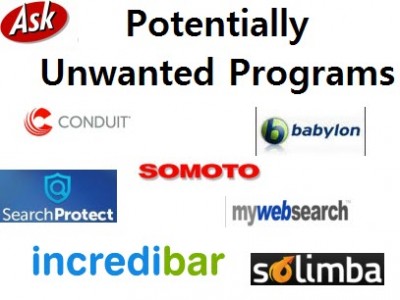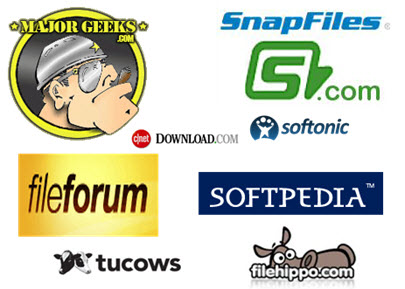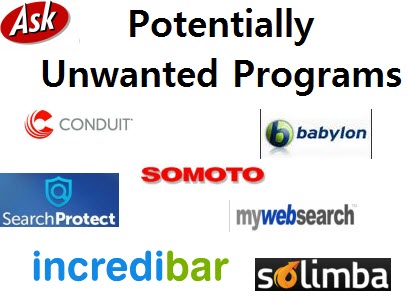 Potentially Unwanted Programs (PUPS), have been infesting our machines for years but certainly not in the same quantity and frequency as today. Unfortunately, freeware developers appear to have cottoned on to this shabby method for creating additional income in droves, to the point where, in this day and age, unpolluted freeware is becoming a genuine rarity.
Potentially Unwanted Programs (PUPS), have been infesting our machines for years but certainly not in the same quantity and frequency as today. Unfortunately, freeware developers appear to have cottoned on to this shabby method for creating additional income in droves, to the point where, in this day and age, unpolluted freeware is becoming a genuine rarity.
It seems the trading of information regarding our online activities is big business and there are plenty of companies out there looking to take advantage. Even antivirus vendors who offer free versions, and are supposed to be the ultimate guardians of our security, have been getting into the act. One of the most common forms of bundling adopted by these antivirus companies is the re-branding of the Ask toolbar to make it sound like an innocuous part of the overall security – a rose by any other name!
I can understand why some genuine freeware developers working with a meager income might head in this direction, but for the security software vendors, who are already grabbing lots of users’ hard earned cash via their premium products, it seems rather like an exercise in pure greed to me.
When it comes to PUPS, today’s freeware downloaders are on a hiding to nothing. It starts with the developers/vendors making sweetheart deals with advertising companies to help bolster their income and filters all the way through to the download sites who, not wishing to miss out on the potential additional income on offer, bundle even more crap upon crap.
Yes folks, bundled crapware has become a near unavoidable part of freeware installations and the need for heightened vigilance has become exponentially more paramount.
Vigilance is key!
I’ve always advocated that security starts between the user’s ears and this is especially true for dealing with PUPS. Vigilance during any installation process is key, don’t just click through an installation. watch out for the small print and those often well disguised options to decline. Look through each page of the installation thoroughly before clicking Next!
Beware of download sites!
 Downloading direct from the developer has always been the preferred option but many people like to download from dedicated hosting sites for the convenience of having everything, including alternatives/choices, in one place. Thus, download sites remain very popular.
Downloading direct from the developer has always been the preferred option but many people like to download from dedicated hosting sites for the convenience of having everything, including alternatives/choices, in one place. Thus, download sites remain very popular.
Some years ago I published a warning about using CNET Download.com for downloading freeware, in fact I do believe I was one of the very first to point the finger at Download.com and bring its unsavory practices to the forefront. Since that article (Beware downloading from CNET Download.com), numerous tech blogs have joined in the condemnation of Download.com and its policies, yet it remains one of the most popular destinations for freeware downloaders… go figure!
One thing regarding Download.com that I find difficult to fathom is why the site has never been flagged as a bad site. It’s beyond me, but I’m guessing money and influence might have something to do with it.
Unfortunately, the trend has been for more and more download sites to join Download.com on the dark side. Among the more popular download sites you should avoid, or at the very least use with extreme caution are; Download.com, Brothersoft, Softonic, Tucows, and more recently FileHippo.
Sad to say that the list of safe download sites among the more popular ones is a lot shorter, especially following the unfortunate demise of FreewareBB. I recommend MajorGeeks myself, and Softpedia second. I also believe that Snapfiles remains on the straight an narrow but having not dealt with that site recently I can’t be 100% certain. Perhaps someone might like to confirm?
Last but certainly not least, there is a wealth of information right here at DCT on ways to avoid crapware, including the following:
- How to Avoid Toolbars & other Unwanted Programs
- Avoid Unwanted Crapware with *Unchecky*
- More Ways To Avoid Unwanted Crapware
And if you are thinking that this article is just more of the same – anyone who is dealing with clients’ machines on a regular basis will know that this message is just not getting through and definitely bears repeating… over an over if necessary. The more people who listen, the less amount of crapware that will get installed, and that may actually lead to a change of direction for developers and download sites alike. The only way we can force a change is to cut off or greatly reduce the stream of income.
Please feel free to offer suggestions for either list, good or bad download sites, and I’ll add them into the article (after checking them out of course). You can help build a comprehensive list for the benefit of others to refer to and, if that happens, we’ll publish the list permanently on the site somewhere.

As we know all too well Jim, the purpose of many (if not most) download sites is primarily to make money. Unfortunately, not everyone appreciates this and will blindly hit the download button all day long, installing all manner of crap-ware which only fuels the sites to drive even further as they see the potential for generating profit.
Some years ago, a software developer submitted a fake download to a number of download sites, and even the description for the software read something along the lines of “This software does nothing. It doesn’t even run … It was created as an experiment to see how many shareware awards it got”. Believe it or not, the software (which does nothing remember) clinched 16 awards from individual download sites!. Anyone can read the story here : http://successfulsoftware.net/2007/08/16/the-software-awards-scam/ but it only goes to prove that many download sites don’t particularly care about the end user and will accept, list and even recommend a download without first making any checks whatsoever, even a basic one to ensure the submitted download isn’t simply a virus.
That said, and having had the financial responsibility of running a download site, its all too apparent how much it can take to maintain such a site, especially when hosting files, although I always maintained I would walk away from the site rather than sell out to the deceitful practices others employ, like recommendations or higher listing positions for payments or link-backs which is why you rarely saw a recommendation from me on the site, I always preferred to let the user ratings or download numbers do the talking.
Thing is, nobody would begrudge anyone some financial recourse for their hard work and effort, and that goes for both the developers and download sites, but it’s the trickery and deception I can’t abide by, and the interfering with someone’s own software such as wrapping downloads with installers!.
Unfortunately, as we’ve learned the hard way, ethics don’t pay the bills, aggressive marketing and imposing third party software on unsuspecting downloads does. I spent nearly 8 years trying to help, warn and show people the tricks and deceit and if I managed to save even a handful of people from installing crap-ware then I consider my time spent to be worthwhile, alas unfortunately where I left off, there are likely a few hundred other sites on the net ready to scam and trick other unsuspecting users. The trickery and deception will evolve, like everything else, and people will have to remain vigilant and up to speed on what’s happening if they are to continue steering clear of the bugs and nonsense we find wrapped up in our downloads these days 🙂
Marko
I still use sites like Download.com to search for programs because of the reviews and user ratings. But, for more than a year now I have refused to use the site to download what I have found. I will do a Google search for the software’s home page. Even then, I am careful during the install.
I broke my own rules last week and paid for it. I downloaded and installed a software package for a specific task I had used a few years back and had been happy with. I ended up with the Trovi virus. A nasty bit of code that turned out to be very time consuming to get rid of. I am disappointed first because my well rated anti-virus program didn’t catch it. Second, with myself for being in a rush and not thoroughly vetting the software first. Now I can no longer brag that I have not been virused in three years.
I am still paying for it in my browsers as I had to wipe them completely to clean them. Now I am gradually getting back all my personal settings and add-ons. 🙁
BTW, the software I downloaded was a piece of crap. Don’t know what they did with it over the past few years, but it functionality was much worse. I purged it too.
It is getting harder and harder to find reliable freeware.
Hi Tom – Problem is, many of the reviews on Download.com, both editorial and user, are bogus. Favorable editorial reviews are often published in return for exclusivity or some other form of reward and favorable user reviews often emanate from the developer’s circle of friends and associates.
The trouble with Download.com is that they don’t vet anything so any information and downloads they provide are always going to be suspect.
Not to mention software changes hands and changes over time. I’ve seen good software get ruined over the years
I do use Unchecky and will install it on every machine I get to work on. The one site that really gets to me is Adobe and why they insist on installing Google Chrome and the Google Toolbar. Their is a work around but it is easier to just uncheck the options. I just wonder how long some of the download sites will allow Unchecky to uncheck their program installers. One of my freeware wants to install Spigot and I don’t even know what that is.
Jim, I seem to remember our conversation about Download.Com years ago. Believe it’s protected by software review writers (don’t want to bite the hand that feeds them). Even the reviews there were often bogus, and why people still use the site remains a mystery. Unchecky is a program that helps filter out unwanted software, but it’s development is at a stand still.
For every soul you help save, many take the plunge into darkness. But, don’t despair, keep the faith, Mindblower! 🙂
Hi MB – Yes, your memory serves you well my friend. I didn’t even touch on the many bogus reviews on Download.com but you are quite right of course.
Definitely a site to be avoided!
Beware of Source Forge as well. They too are bundling PUP’s.
Can you show me one example, as I’ve used Source Forge in the past and recently without problems, Mindblower!
The computers of today in many peoples’ minds are the same as their TV, switch it on, watch it, search for preferred programmes, load and watch from a whizz-bang box, turn off, leave.
Current responses to my HELPFUL advice, when ‘they’ have a computer problem!
“Maintenance, it requires maintenance you say, a computer is like a TV, turn it on do your thing, turn off, it’s not a car, mate, all you rip-off merchants are the same, I’ll take it to Dick Smith where I bought it.”
C’est la vie.
Jonno
Check out FreewareFiles.com. Have used many programs from this site without problems.
One site that offers you a warning if anything extra is offered in the desired program to be downloaded is Snapfiles. It’s mandate is to be one of the best and cleanest download sites on the net, not a pup distributor. Been using this site for years with no problems, and it has an excellent freeware section.
By the way, I am not affiliated with Snapfiles, just giving back to the internet community with this posted reply.
http://www.snapfiles.com/
As for a layer of protection for unwanted (pup) extras, use a program called “Unchecky”. Runs in the background and monitors when you are loading a program onto your computer. Two things I have noticed, it is low on resources, does not conflict with any programs and it does what it says it will do. Okay that is three.
Hope that helps you all.
Regards
Bad news Jim,
Both Softpedia and MajorGeeks (only very recently) have sold out. I’d like to take my donations back. I think that Bleeping Computer is still safe but it’s not for the masses. The best way to download freeware is by using Ninite. Unfortunately Adobe pulled an Apple (read lawyer) on Ninite and you can no longer get FlashPlayer via Ninite. So you have to go to Adobe. “just another joe” is right about unchecky being a must, but chrome is going to drop tracking cookies on your system regardless. It’s almost not worth bothering to get rid of them (SUPERAntiSpyware gets rid of them but they’re back in seconds.
What do you mean Gerry, sold out in what way? MajorGeeks has made no changes to its policies that I am aware of.
‘How To Geek’ had a fairly interesting article about the popular download sites – with examples: http://www.howtogeek.com/207692/yes-every-freeware-download-site-is-serving-crapware-heres-the-proof/
Search engines that bury the developer’s site when you search for the ‘exact’ name of the software are not a big help either.
It’s a sad state of affairs when you need a program(s) to download ‘freeware’.
Unchecky is a good program but it’s got a downside, it makes people lazy.
We’ve all learned the hard way, well at least most of us, installing something and ending up missing the extras we allowed it to instal. The problem is by using a program like Unchecky, as great as it is, we become lazy and don’t bother reading what we are doing. It reminds me of the many hacks going on, most of them are down to people being tricked. We need to really teach better practises.
I had Unchecky, didn’t trust ‘it’ completely, fortunately, it missed a few ‘boxes’ in my tests.
I prefer to wander through the ‘obstacles’ find the correct link to a programme and download it into the ‘trap’ for testing.
Software vendors that install PUPs count on folks choosing the easy way: “common install” method versus “advanced install.” All those unwanted PUPs, toolbars and other unwanted add-ons hide behind “Oh yeah, install me too” checkboxes that you’d see and possibly uncheck if you were to choose the “advanced install” method instead. When I work on friends and neighbor’s PCs, I usually install a little utility called “UNCHECKY” which not only unselects those checkboxes that would prompt installing unwanted programs, but should my friend or neighbor check one of those boxes that Unchecky unchecked, it will display a warning letting them know that if they proceed with the box checked an unwanted or dangerous program they didn’t intend to install WILL get installed. Unchecky is a lightweight utility that sits in the task tray and helps you install only what you truly wish to install. It’s well worth the install.
Vickie – If you’d care to check through the links which were included in this article, you’d see that methods such as common install vs advanced install and Unchecky have already been well and truly covered.
That’s why I included them (the links that is). 🙂